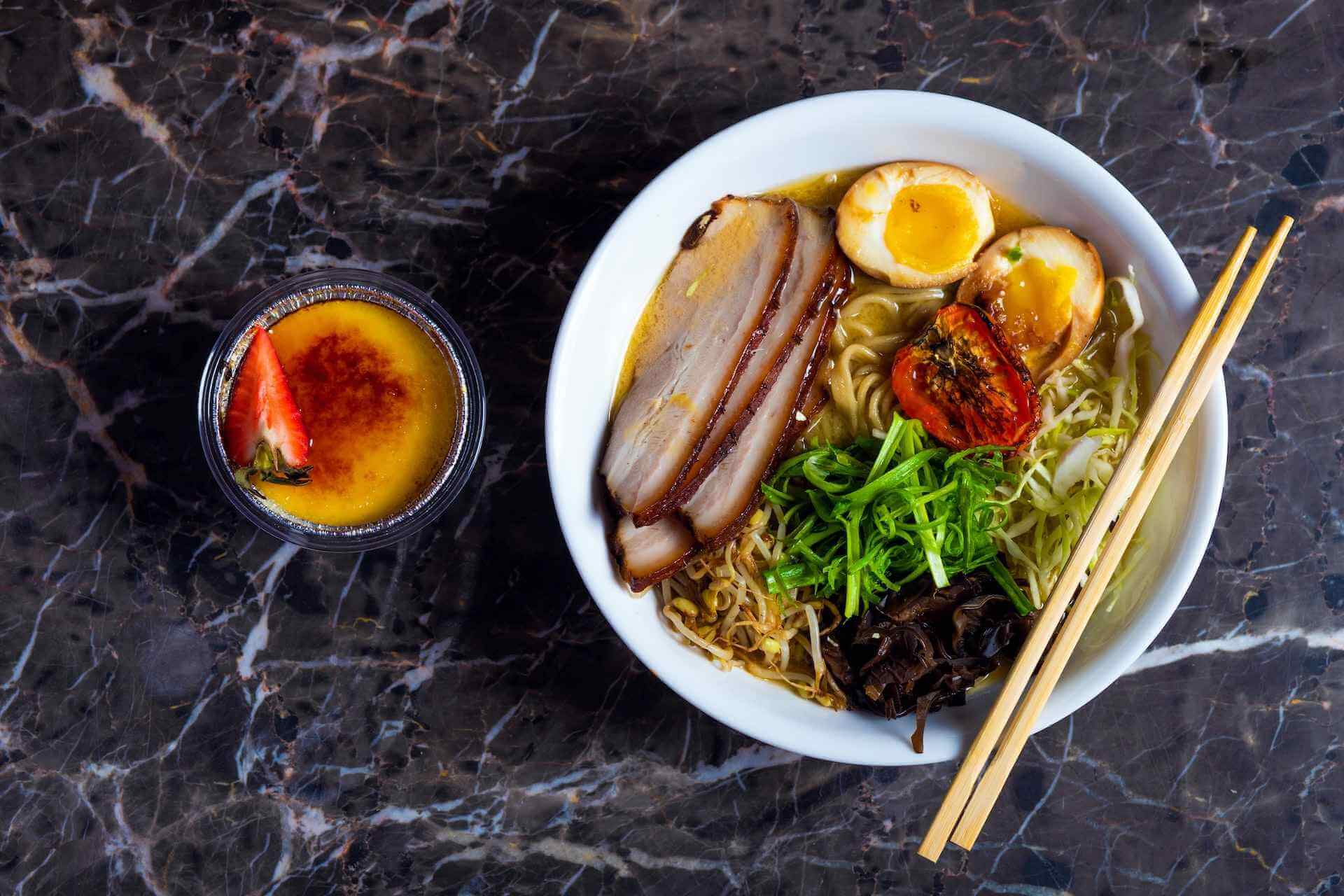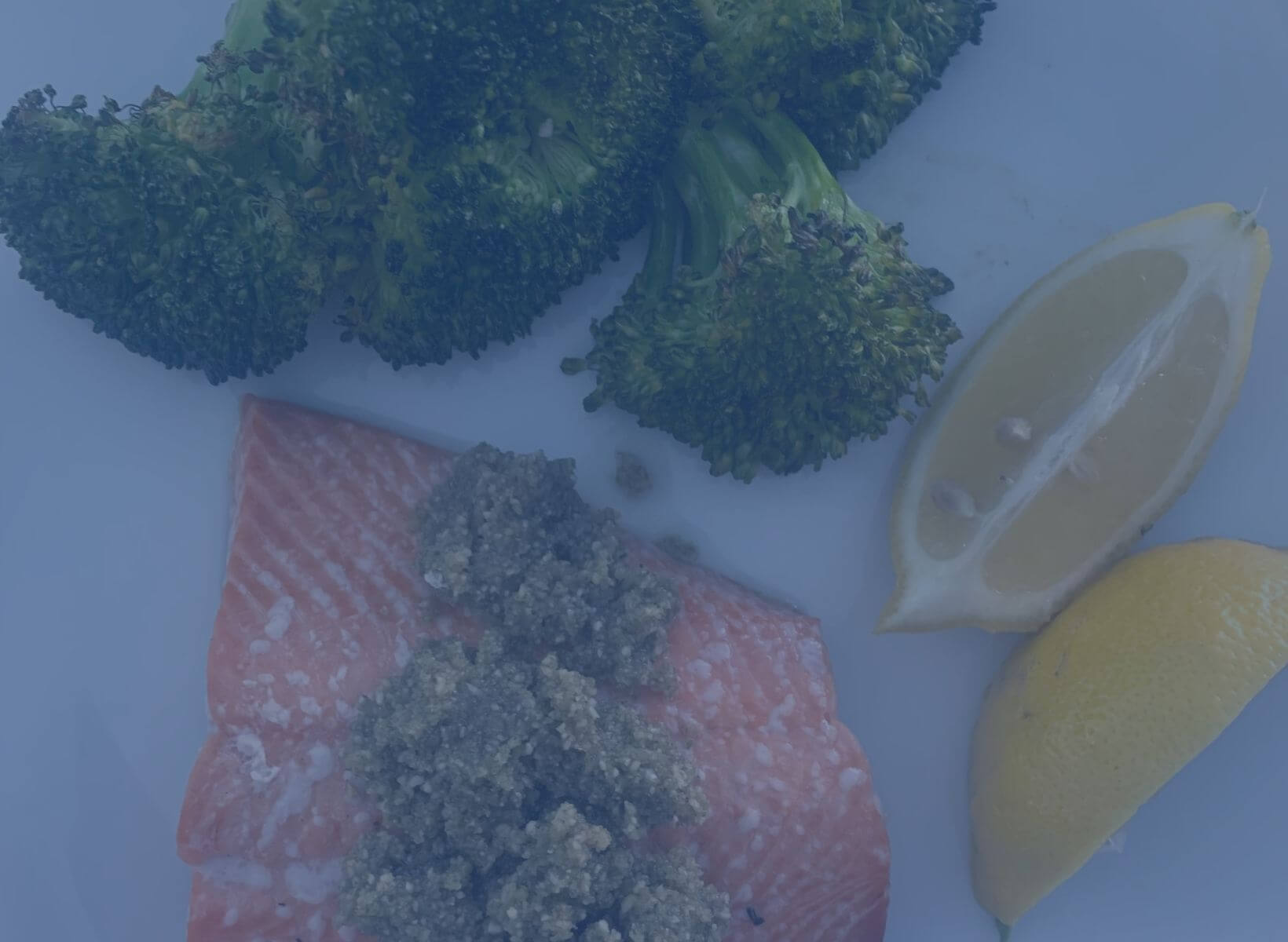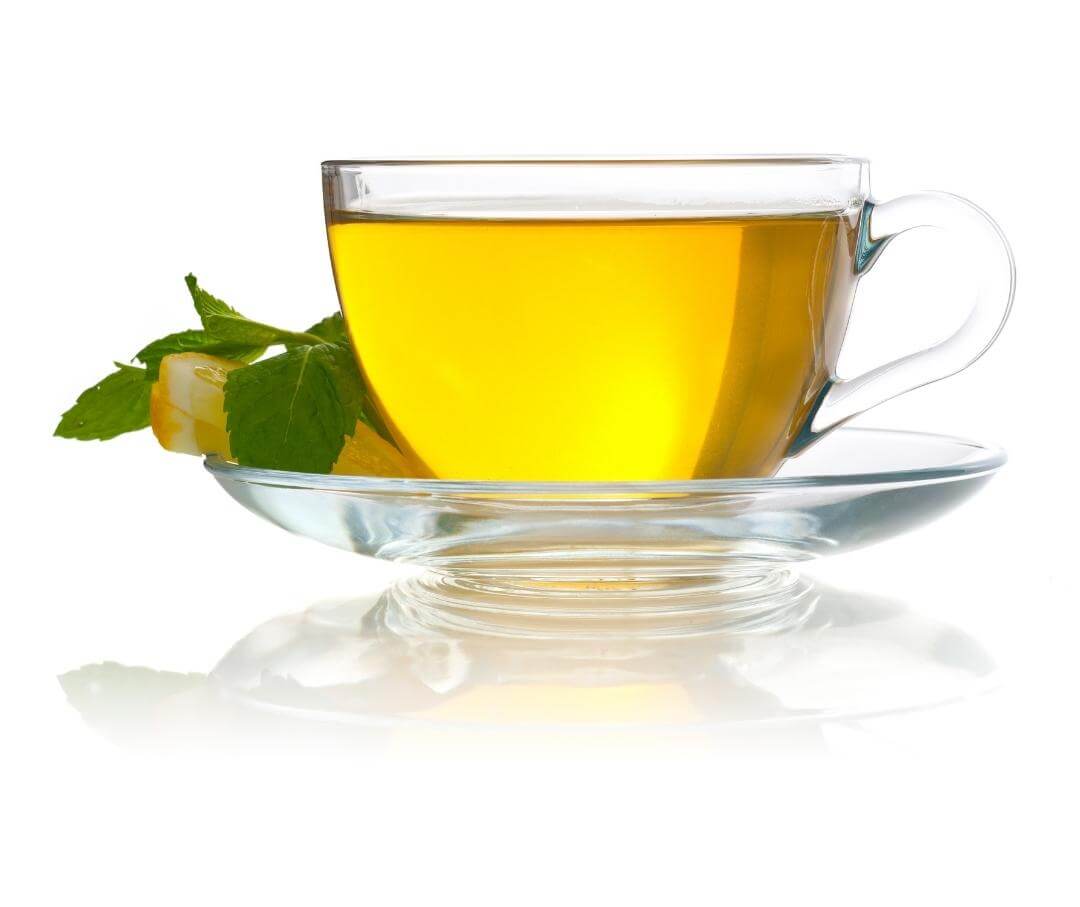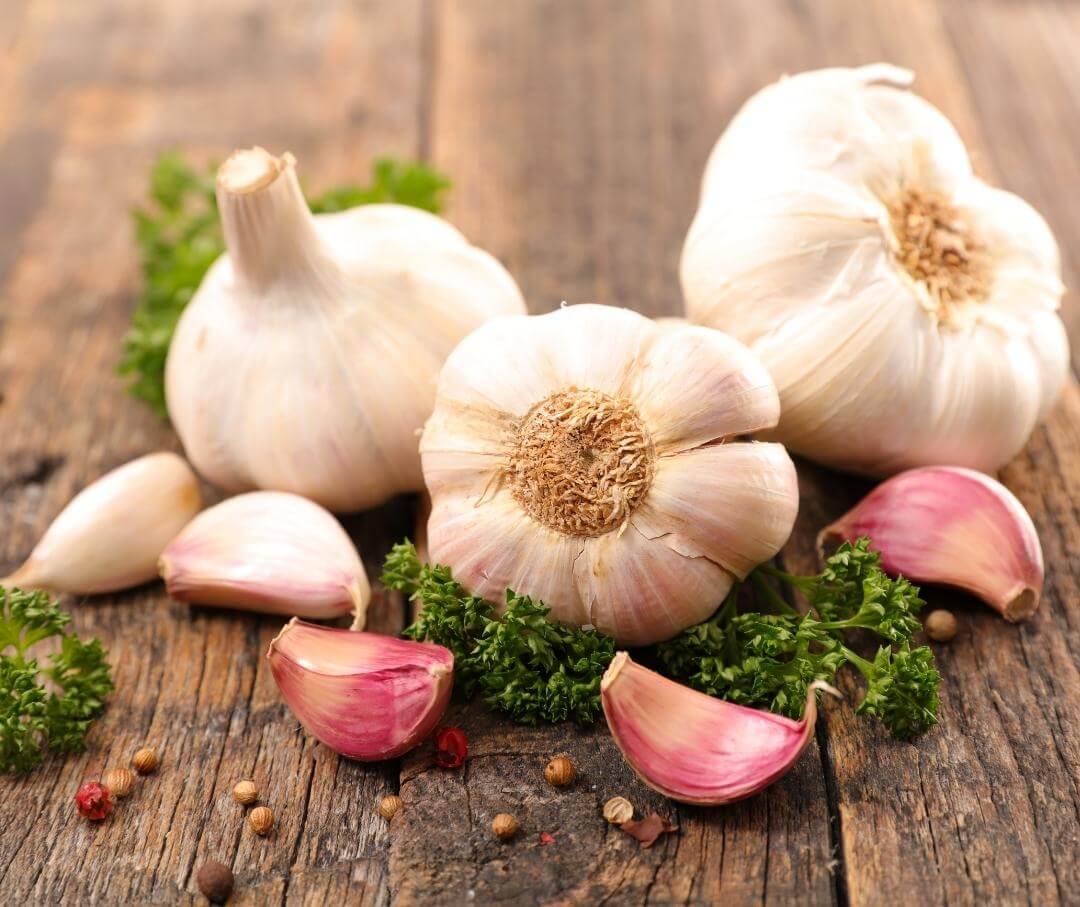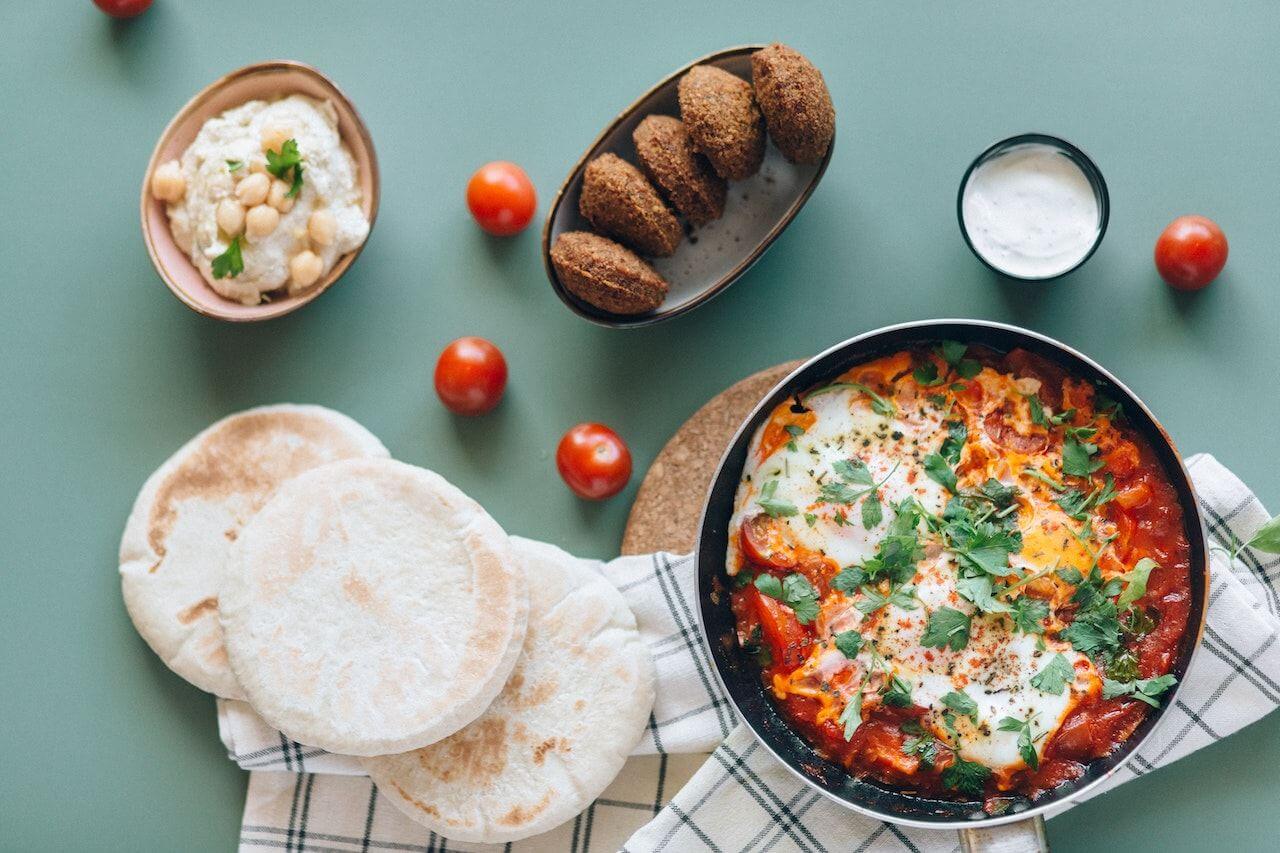Feeling peckish eating before sleeping is a good idea to eat before you hit the hay? The topic of eating before bed is a controversial one, with research pointing to both pros and cons. However, studies reveal how late-night food can help with sleep and weight loss. Let’s dive into the merits of eating before bed and what foods you can choose to get great rest and lose weight.
{{mid-cta}}
Eating at Night Without Gaining Weight: Is It Possible?
Traditionally, it’s generally believed that eating right before bed is unhealthy. One popular argument is that eating late at night can lead to weight gain. The thinking goes that as your metabolism slows down, more calories consumed right before sleeping will be turned into fat compared to the calories consumed during the day. Some studies do show that eating late at night can contribute to obesity.1
But there are more factors to consider than calories when timing meals for weight loss. Some argue that eating late at night leads to overconsumption of unhealthy foods because discipline tends to wane as the day wears on and we become more tired and overwhelmed. Evidence also shows that late-night eating can interfere with your circadian rhythm and metabolic health.1
Why Are Late Night Snacks Important for Weight Loss?
While some research supports the idea that eating late at night is not optimal, contrary arguments are growing. If done correctly, eating before bed can help with sleep, regulating glucose levels, and building muscle. All of these factors are central to weight loss.
So what’s the conclusion? When eaten before bed, certain foods could help improve sleep quality without compromising your health and aid in weight loss. Current evidence shows that if you’re hungry before bed, the best action might be to eat a smaller snack high in protein and some of the micronutrients known to improve sleep quality to satiate you and help you sleep. Going to bed hungry can reduce your sleep and metabolism, like eating too much. Let’s dive into the best foods to snack on when you’re feeling hungry at bedtime.
<p class="pro-tip"><strong>Learn More: </strong><a href="portion-control-for-weight-loss">Portion Control for Weight Loss: 10 Tips for Success</a>.</p>
12 Best Foods to Eat at Night for Weight Loss

Below are 12 go-to healthy snacks that will help curb your hunger before bed while ensuring you are still able to reach your weight loss goals. Any bedtime snack should be around 150 to 200 calories and contain protein to ensure you stay full overnight and your blood sugar levels stay in an optimal range.
1. Protein Shake
The best bedtime snacks are filling but not too heavy. Protein gives that feeling of satiety and stabilizes blood sugar levels, which can help you sleep. If you exercise earlier in the day, consuming protein at night can be especially beneficial as it helps with muscle repair. Try whipping up a protein shake for an easy snack at the end of the day to alleviate hunger and build muscle. A wide variety of protein powders on the market cater to different preferences. Animal-based powders include casein, whey, and collagen, while vegan options can come from peas, seeds, rice, and soy.
2. Turkey
Ever feel especially tired after a big Thanksgiving feast? The heaping amount of food you just ate might not be the only culprit. Turkey contains tryptophan, an amino acid that serves as a precursor to melatonin. Melatonin is your body’s “sleep” hormone and directs your body to start feeling tired.2 Tryptophan can also increase levels of serotonin, another sleep-promoting hormone. Turkey leftovers or a quick turkey and veggie wrap could be the perfect way to fill you up and help you doze off.
3. Banana & Almond Butter
Both bananas and almonds are great sources of magnesium, a nutrient that some even take in supplement form before bed because of its potent sleep-promoting properties.3 Bananas are also high in potassium, which helps you get better sleep.4 Aim for only two tablespoons of any nut butter (like a no-sugar-added peanut butter).
4. Nuts & Seeds
Besides being high in protein and healthy fats, many nuts and seeds contain a host of nutrients that support your body’s sleep transition. Pistachios, for example, contain the highest amount of melatonin within the nut family and also contain tryptophan. Almonds and walnuts are also good sources of melatonin and magnesium. A handful of nuts can be a healthy alternative to that bag of potato chips in your pantry.
5. Yogurt or Cottage Cheese & Fruit
Greek yogurt and cottage cheese contain high amounts of protein and calcium, which has been shown to promote rejuvenating sleep.3 They are also a great alternative to ice cream or a fro-yo without the high-fat content.
Some fruits are also thought to help with sleep. Kiwis, for example, improved sleep when eaten repeatedly before bed.5 Another study found that a mix of bananas, oranges, and pineapple increased males’ melatonin production.6 Tart cherries or tart cherry juice could be an option for those trying to keep sugar to a minimum, as they have also been shown to increase melatonin and have a low GI index.7 Sprinkle nuts or seeds onto your yogurt and fruit for a finishing touch on a perfect bedtime parfait.
6. A Bowl of Oatmeal
Oatmeal is a known source of melatonin and is high in fiber, which makes it a filling and sleep-inducing bedtime snack.8 It is also high in carbohydrates, so it can work better for some people and worse for others. The blood glucose spike resulting from high-carbohydrate foods can sometimes disrupt sleep quality.9 Try out a warm bowl of oats or a jar of overnight oats, and note how your body feels.
7. Egg Wraps
Eggs are a great food for weight loss because of their high protein content and low calorie count. They also contain many important vitamins and minerals, like vitamin D, selenium, choline, and tryptophan, which aid in all sorts of physiologic functions, including sleep regulation. Egg wraps are an easy way to consume eggs. Simply flip a thin layer of mixed eggs onto a pan after about 30 seconds. Stuff the wrap with meat, avocado, greens, tomato, or cheese, and eat warm or cold.
8. Popcorn
Good news for those who don’t want to give up their ritual of evening movies and bowls of popcorn. You can still enjoy this late-night snack without compromising your weight loss goals by carefully selecting toppings for your popcorn. The key is to avoid buying pre-packaged popcorn loaded with butter and salt and instead make your own at home. Use plain or lightly oiled kernels and top with nutritional yeast, a powerhouse of nutrition containing lots of protein, vitamins, and minerals that can help with sleep and weight loss.10
9. Cheese and Crackers
Pairing cheese with crackers can give you a delicious balance of protein, fat, and carbohydrates. Like other dairy products, cheese is high in protein and calcium, which can help with sleep. For an extra health boost, select minimally processed and whole-grain crackers that aren’t too high in sodium.
10. Cucumber and Hummus
If you’re craving something fresh, crunchy, and creamy, look no further than cucumber and hummus. The chickpeas in hummus are a good source of protein and nutrients that help with sleep like magnesium and tryptophan.11
11. Chamomile Tea
Chamomile tea is popular for the calming, restful sensation it provides. Though research on its physiologic effects is limited, chamomile has been used for thousands of years as a medicinal herb. It’s been used to treat skin conditions, help with mood disorders like anxiety and depression, settle upset stomachs, and as a mild sedative to improve sleep.12 Though chamomile can be used in supplement and oil forms, the most pleasant way to add it to your bedtime routine might be as a warm mug of tea.
12. Warm Milk
A warm cup of cow’s milk has long been touted as an at-home remedy for insomnia. It’s believed that the reason for this is its high tryptophan content.13 Like yogurt, milk also has a high amount of protein and calcium, which amplifies its satiating and sleep-promoting effects. Some milk alternatives, like almond and oat milk, may not offer the same protein or sleep benefits as cow’s milk, but they can still provide that filling cozy feeling. Milk can be incorporated into many bedtime beverages, like herbal tea or fruit juices. Try out this recipe for golden milk, a warm, health-promoting Indian drink made by mixing milk with spices like turmeric and cinnamon for a cozy way to end the day.
Foods You Should Avoid Before Bed to Lose Weight

At the end of a long and tiring day, giving in to the cravings for instantly gratifying foods like sweets, energizing foods, and highly processed snacks can be easy. But you might find your body doesn’t feel great the next day. Even more, these types of food can cause subtle sleep quality disruptions over time, affecting your health long-term.
Before bed, it’s best to avoid:
- Foods Containing Caffeine: Used as a stimulant for more alertness, caffeine will not help you sleep. What’s often overlooked, though, is how long the drug stays in your system. After a cup of coffee at 10 AM, half the caffeine is still in your body at 4 PM, and your body might not be free of caffeine until 4 hours later at 8 PM.14 Even small amounts of caffeine can make it harder to fall asleep and interfere with sleep quality, so it's best to avoid consuming high amounts of chocolate, caffeinated tea, and caffeinated soft drinks before bed.15
- Foods High in Sugar and Carbohydrates: Though the glucose spike and then crash from high-carb and highly sweet food can make it easier to fall asleep, research shows that diets high in these foods cause poorer sleep quality.9
- Spicy, Minty, Fatty, and Acidic Foods: Foods like hot sauce, mint, greasy fast food, and citrus are included in this list. For some people, these types of foods can cause indigestion. If this is the case for you, avoid eating them close to bedtime to preserve your sleep quality.
- Alcohol: Falling asleep when tipsy can seem like a breeze, but alcohol causes significant disruptions to sleep quality. Alcohol suppresses REM sleep, a stage of deep sleep essential for being well-rested, and also causes you to rise out of sleep cycles.16
Going to Bed Hungry: Should You Really Do It?
Eating a large meal before bed is probably not the best choice for weight management. Besides the excess calories you’re likely to consume, eating a lot at one time can cause discomfort, heartburn, and indigestion when you lie down to sleep. Ultimately, your sleep quality will take a hit, which can affect your metabolic health.
On the other hand, going to bed hungry can disrupt sleep, just like eating too much can. It can also lead to more instances of you waking up ravenous in the middle of the night and raiding your kitchen. The next time you feel hungry at bedtime, try one of the snacks listed in this article to help you build muscle, lose weight, and get a good night’s sleep.
Improve Your Health and Wellbeing With Signos’ Expert Advice
With Signos’ expert advice and personalized insights, you can take control of your metabolic health and choose the proper medication to improve your health, manage diabetes, and control weight loss. Visit the Signos blog to learn the ins and outs of metabolic health, including how lifestyle factors like nutrition, sleep, and stress are tied to our metabolism and wellness. Find out more about how Signos works to help you make lasting lifestyle changes for better well-being. Not sure if Signos is right for you? Take a quick quiz to find out!
<p class="pro-tip"><strong>Also Read: </strong><a href="superfoods-for-weight-loss">22 Best Superfoods for Weight Loss</a>.</p>
- Item 1
- Item 2
- item 3
Topics discussed in this article:
References
- Yoshida, J.; Eguchi, E.; Nagaoka, K.; Ito, T.; Ogino, K. Association of Night Eating Habits with Metabolic Syndrome and Its Components: A Longitudinal Study. BMC Public Health 2018, 18 (1), 1366. https://doi.org/10.1186/s12889-018-6262-3.
- Silber, B. Y.; Schmitt, J. a. J. Effects of Tryptophan Loading on Human Cognition, Mood, and Sleep. Neurosci. Biobehav. Rev. 2010, 34 (3), 387–407. https://doi.org/10.1016/j.neubiorev.2009.08.005.
- Insomnia: Studies Suggest Calcium And Magnesium Effective. Medical News Today. https://www.medicalnewstoday.com/releases/163169 (accessed 2024-04-16).
- Keene, A. C.; Joiner, W. J. Neurodegeneration: Paying It Off with Sleep. Curr. Biol. 2015, 25 (6), R234–R236. https://doi.org/10.1016/j.cub.2015.02.003.
- Lin, H.-H.; Tsai, P.-S.; Fang, S.-C.; Liu, J.-F. Effect of Kiwifruit Consumption on Sleep Quality in Adults with Sleep Problems. Asia Pac. J. Clin. Nutr. 2011, 20 (2), 169–174.
- Sae-Teaw, M.; Johns, J.; Johns, N. P.; Subongkot, S. Serum Melatonin Levels and Antioxidant Capacities after Consumption of Pineapple, Orange, or Banana by Healthy Male Volunteers. J. Pineal Res. 2013, 55 (1), 58–64. https://doi.org/10.1111/jpi.12025.
- Kelley, D. S.; Adkins, Y.; Laugero, K. D. A Review of the Health Benefits of Cherries. Nutrients 2018, 10 (3), 368. https://doi.org/10.3390/nu10030368.
- 6 Foods That Can Improve Sleep. Healthline. https://www.healthline.com/health/foods-for-better-sleep (accessed 2024-04-16).
- Katagiri, R.; Asakura, K.; Kobayashi, S.; Suga, H.; Sasaki, S. Low Intake of Vegetables, High Intake of Confectionary, and Unhealthy Eating Habits Are Associated with Poor Sleep Quality among Middle-Aged Female Japanese Workers. J. Occup. Health 2014, 56 (5), 359–368. https://doi.org/10.1539/joh.14-0051-oa.
- Contributors, W. E. Nutritional Yeast: Is It Good for You?. WebMD. https://www.webmd.com/diet/nutritional-yeast-good-for-you (accessed 2024-04-16).
- 10 Health and Nutrition Benefits of Chickpeas. Healthline. https://www.healthline.com/nutrition/chickpeas-nutrition-benefits (accessed 2024-04-16).
- Ferdinand, P.; Griffin, R. M.; Mitchell, K. Chamomile Health Benefits & Uses. WebMD. https://www.webmd.com/diet/supplement-guide-chamomile (accessed 2024-04-16).
- Komada, Y.; Okajima, I.; Kuwata, T. The Effects of Milk and Dairy Products on Sleep: A Systematic Review. Int. J. Environ. Res. Public. Health 2020, 17 (24), 9440. https://doi.org/10.3390/ijerph17249440.
- Contributors, W. E. What to Know About How Long Caffeine Lasts. WebMD. https://www.webmd.com/diet/how-long-caffeine-lasts (accessed 2024-04-14).
- Wikoff, D.; Welsh, B. T.; Henderson, R.; Brorby, G. P.; Britt, J.; Myers, E.; Goldberger, J.; Lieberman, H. R.; O’Brien, C.; Peck, J.; Tenenbein, M.; Weaver, C.; Harvey, S.; Urban, J.; Doepker, C. Systematic Review of the Potential Adverse Effects of Caffeine Consumption in Healthy Adults, Pregnant Women, Adolescents, and Children. Food Chem. Toxicol. Int. J. Publ. Br. Ind. Biol. Res. Assoc. 2017, 109 (Pt 1), 585–648. https://doi.org/10.1016/j.fct.2017.04.002.
- Colrain, I. M.; Nicholas, C. L.; Baker, F. C. Alcohol and the Sleeping Brain. Handb. Clin. Neurol. 2014, 125, 415. https://doi.org/10.1016/B978-0-444-62619-6.00024-0.
- Healthy Bedtime Snacks To Eat Before Sleep. Sleep Foundation. https://www.sleepfoundation.org/nutrition/healthy-bedtime-snacks (accessed 2024-04-15).
- Djokic, G.; Vojvodić, P.; Korcok, D.; Agic, A.; Rankovic, A.; Djordjevic, V.; Vojvodic, A.; Vlaskovic-Jovicevic, T.; Peric-Hajzler, Z.; Matovic, D.; Vojvodic, J.; Sijan, G.; Wollina, U.; Tirant, M.; Thuong, N. V.; Fioranelli, M.; Lotti, T. The Effects of Magnesium – Melatonin - Vit B Complex Supplementation in Treatment of Insomnia. Open Access Maced. J. Med. Sci. 2019, 7 (18), 3101–3105. https://doi.org/10.3889/oamjms.2019.771.


.jpg)

